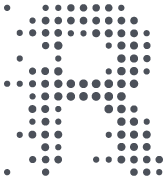
I was facilitating a Rookie Manager group recently, and the topic of being “Facebook Friends” with members of your team came up. I related some bad experiences where the personal / professional line was crossed on Facebook:
James : I had a manager working for me who was “Facebook Friends” with a lot of his team. There was some inappropriate commenting on posts and it became an HR issue. I suppose the same thing could have happened if it had been two co-workers, so I don’t know the manager part was a special problem.
Which had led me to the conclusion that :
James : I typically wait until after I’ve finished working with someone to friend them.
It was an easy way for me to mitigate the risk. Then a couple of participants made comments that changed my perspective :
Scott : To me, there’s a difference between priorities (I need to get home to be with my family), and secrecy (I don’t trust you well enough to talk about my personal life). It takes a small leap of faith to trust your co-workers.
Jason : @James Doesn’t that friendship potentially provide a lot of benefits to the working relationship as well?
I spend A LOT of time talking about the importance of trust in working relationships, and yet here I was keeping a tight rein on the social part of my world. As Scott had put it, my personal life was shrouded in secrecy. I had shown my team members the opposite of trust.
When I hit an insight like this, I immediately look at what motivated my behavior, and why I hadn’t seen this before. The answer in this case? Ego! As a senior manager, I had convinced myself that I had to maintain some sense of distance with my team. Would they take me seriously if they saw where I lived or who I hung out with?
I don’t have a problem being transparent and authentic at work. I have been willing to admit I don’t have all the answers. I regularly hold sincere conversations with employees about leaving my team. I can talk at length about different types of transparency in business and the importance of empathy. When my mum died of cancer a few years back, I wrote a very open and transparent note to my team about my last few days with her to thank them for their support; and to remind people that we are all still “human” in a professional environment.
Despite all this, I’d drawn a line at the day-to-day reality of my life. The “Facebook line”.
It took me a few days to settle this paradox. When something big happens – like losing a parent – it’s a big, life-changing event. In extreme conditions, it’s easy to be our best selves: to be magnanimous, to be courageous, to be open. Our world has shifted and in that new space we’re willing to experiment. And we know that people will give us a pass because something big has happened.
What’s hard, though, is being courageous, open and magnanimous every single day, under all conditions. When you don’t get a pass because it’s just another day filled with the mundane and repetitive rhythms of life. I’d chosen to be transparent about my personal life when it was easy and it was about me. I’d missed the opportunity to deepen the bonds of trust between me and my team by letting them see my day-to-day life. The birthday parties, the cycle rides and soccer successes (and failures).
I used to ignore friend requests that came from co-workers and team members. Now I’ve changed my rules. I’ve started to accept friend requests from team members. A Facebook friend requests says “James, I want to get to know you better”. That simple click of acceptance says “I want to know you better too”. What do I have to lose? People will know what music I listen to and comedians I find funny. They’ll know that I like watching funny animal videos and inspirational speakers. What if they judge me? If anything, they’ll discover I’m just another parent of young children with a comfortable, drama free life. Maybe they’ll discover I’m too boring?
Is there risk to connecting with co-workers via Facebook? I think many HR teams would tell you there is. What if you post something someone finds offensive? What if you post a picture of drunken carousing and it hurts your credibility? What if you comment / like more of some employee posts than others? What if it causes conflict?
Unfortunately many HR teams have been limited to reducing risk exposure for a company, rather than truly developing human capital.
When you reduce risk, you make relationships bland, sterile and lowest common denominator. Creative and productive relationships are based in passion and creative conflict while remaining respectful and avoid being personal. By cutting people out of Facebook, I’d made myself bland and one dimensional.
Now I’ve started friending co-workers, I’m certain I will eventually offend or upset a coworker via Facebook. How will I handle that situation? I hope I’m lucky enough that someone brings it to my attention, rather than quietly stewing with their offense. If they do, I hope it creates an opportunity for me to learn a little more about the people around me, and in doing so to evolve and grow.
Becoming “Facebook friends” with a co-worker – as long as both sides are happy to do so – is a way to make you multi-dimensional; to make you more of a human. That vulnerability helps nurture the trust you need between co-workers to take creative risks. That’s a pretty big upside for simply clicking the “Accept” button.




